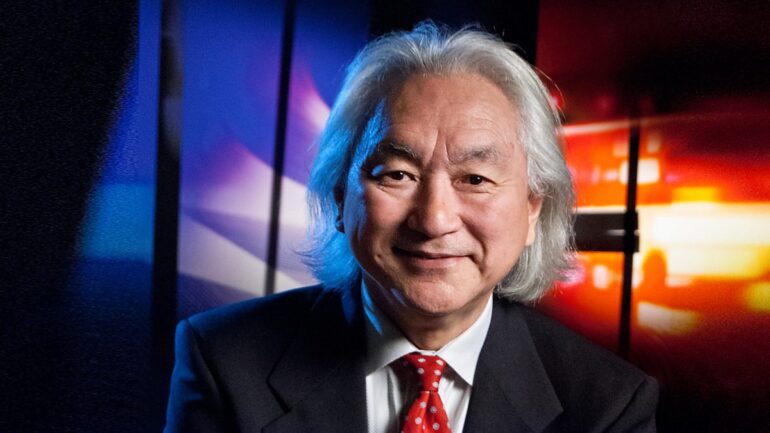TL;DR:
- Theoretical physicist Michio Kaku warns about the dangers of AI chatbots like ChatGPT.
- AI chatbots are capable of regurgitating pre-existing human-generated content without discerning between truth and falsehood.
- Kaku suggests that quantum computing could serve as a fact-checking mechanism for chatbots.
- AI pioneer Geoffrey Hinton resigns from Google due to concerns about the dangers of AI.
- Hinton believes AI systems like GPT-4 already surpass humans in general knowledge and could soon exceed them in reasoning ability.
- The service of AI chatbots has already been used to generate income.
- Hinton highlights the existential risk of AI and the potential for corrupt leaders and “bad actors” to exploit AI technology.
- The power of quantum computing could help address the issues posed by consumer-grade chatbots.
- The need for caution and vigilance in the development and use of AI technology is emphasized by experts.
Main AI News:
The potential hazards of AI chatbots, such as ChatGPT, have been highlighted by esteemed theoretical physicist Michio Kaku. While these AI programs may appear intelligent, they are merely capable of regurgitating pre-existing human-generated content. What sets them apart, however, is their inability to discern between falsehoods and truths, rendering them susceptible to manipulation and the dissemination of erroneous information.
In a recent episode of the widely acclaimed Joe Rogan Experience, Kaku expounded on this issue, stating, “Although these software programs possess some commendable attributes, the downside lies in their susceptibility to fabrication. Their incapacity to differentiate between truth and falsehood raises concerns.” He further elucidated, “They are essentially instructed to compile existing paragraphs, seamlessly amalgamate them, refine the output, and present it as valid information. But does it guarantee accuracy? The answer is simple—it neither cares nor possesses the capability to discern.”
Drawing an analogy, Kaku likened chatbots to teenagers who resort to plagiarism and present others’ work as their own. However, Kaku did offer a glimmer of hope, suggesting that the future adaptation of quantum computing, which utilizes atoms instead of conventional microchips, could serve as an effective fact-checking mechanism.
Kaku postulated that the immense power of quantum computing has the potential to mitigate the issues posed by consumer-grade chatbots. “When quantum computers come into play, we must exercise caution,” he warned. “Quantum computers can assume the role of fact-checkers. They possess the ability to eliminate spurious content from articles. Thus, the hardware may serve as a safeguard against the proliferation of baseless claims generated by the software.”
Kaku’s cautionary statement follows the resignation of Geoffrey Hinton, a revered figure in the realm of artificial intelligence and often dubbed the “godfather of AI.” Hinton cited mounting concerns about the potential dangers of AI as the impetus behind his departure from Google. He asserted that AI systems, such as the upcoming GPT-4, already surpass human beings in terms of general knowledge and could soon outperform them in reasoning abilities as well.
Since its introduction just a few months ago, this service has already been utilized by individuals to generate income, underscoring its practical value. Hinton emphasized the “existential risk” AI poses to modern society, particularly with regard to the potential interference of corrupt leaders in democratic processes. Additionally, he expressed apprehension about the malicious exploitation of AI technology by “bad actors,” envisioning scenarios in which Russian President Vladimir Putin grants autonomous capabilities to robots, resulting in perilous consequences.
During a recent interview aired by the BBC, Hinton elucidated, “We are currently witnessing the likes of GPT-4 outshine individuals in terms of the vast expanse of general knowledge it possesses, far surpassing them by a considerable margin. Although its reasoning capabilities are not as refined at present, it already demonstrates rudimentary reasoning skills. Given the rapid pace of progress, we should be duly concerned about the future implications.”
In light of these grave concerns raised by leading experts, it is clear that the potential ramifications of AI technology warrant serious attention and vigilance. The quest for an optimal balance between innovation and safeguarding the welfare of humanity remains an ongoing challenge.
Conlcusion:
The warnings and concerns raised by renowned physicist Michio Kaku and AI pioneer Geoffrey Hinton regarding AI chatbots like ChatGPT have significant implications for the market. The potential dangers of these chatbots, such as their susceptibility to manipulation and dissemination of false information, raise questions about their reliability and trustworthiness in various industries.
As businesses increasingly rely on AI technologies for customer service, content generation, and decision-making processes, there is a pressing need for stringent fact-checking mechanisms and ethical considerations to ensure the accuracy and integrity of the information provided.
The emergence of quantum computing as a potential solution for fact-checking highlights the importance of ongoing research and development in improving AI technologies. Market players should carefully evaluate the benefits and risks associated with AI chatbots, considering the potential impact on customer trust, brand reputation, and regulatory compliance.
Additionally, the concerns expressed by experts regarding the existential risks of AI and its potential misuse by malicious actors underscore the need for responsible deployment and governance frameworks to safeguard against unintended consequences. In the evolving landscape of AI technology, market participants must navigate the complexities and make informed decisions to leverage the benefits while mitigating the risks associated with AI chatbots.

